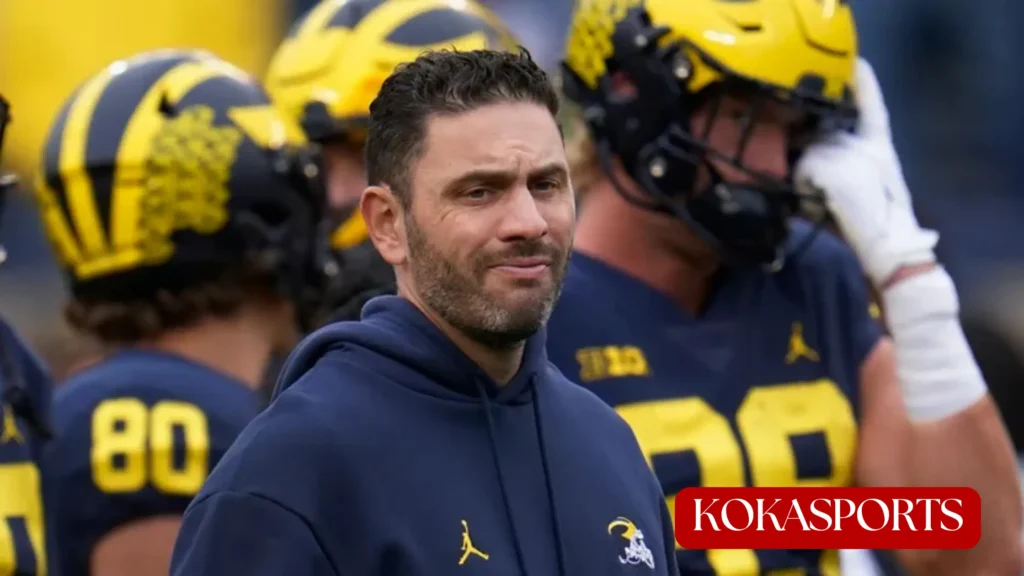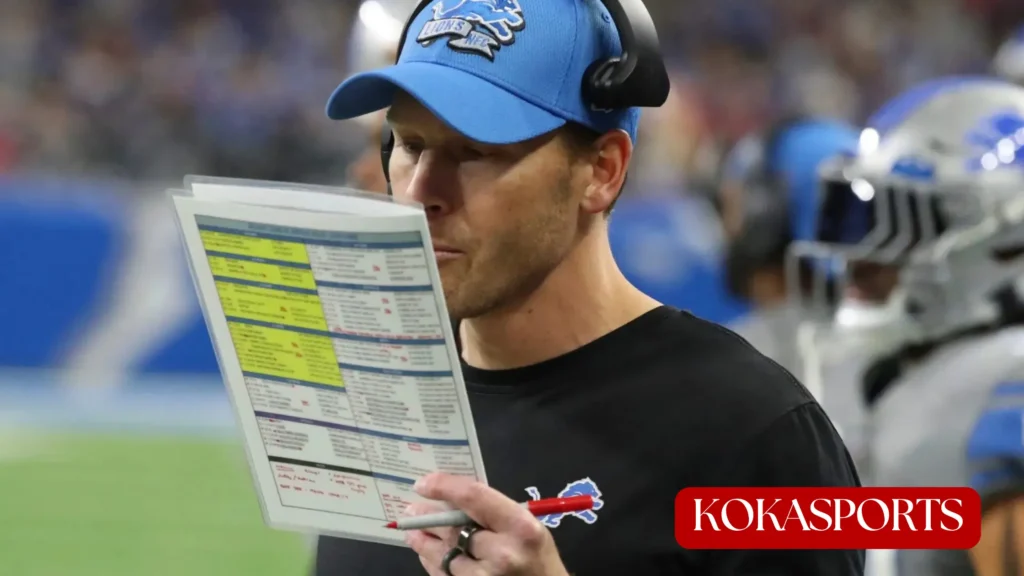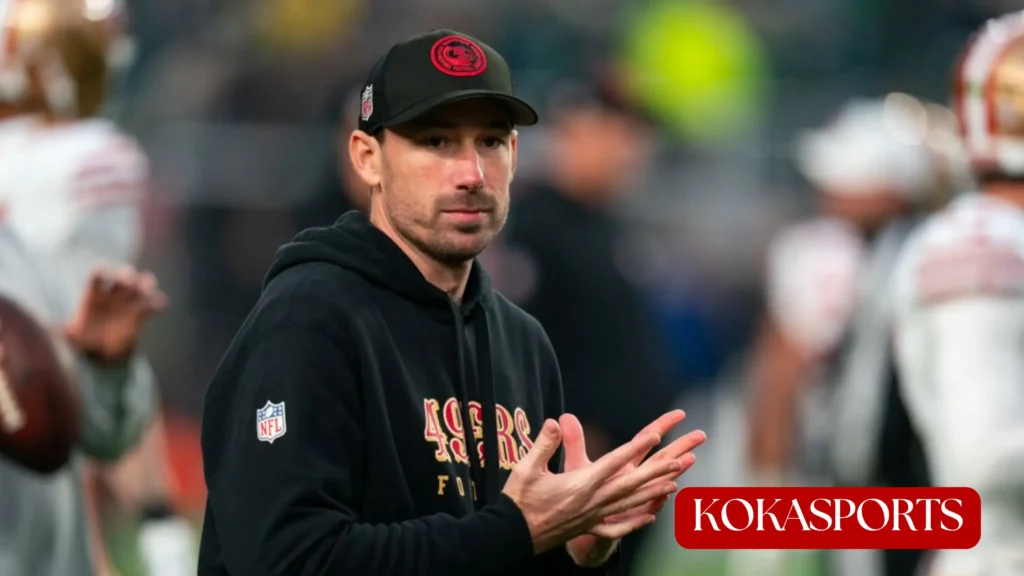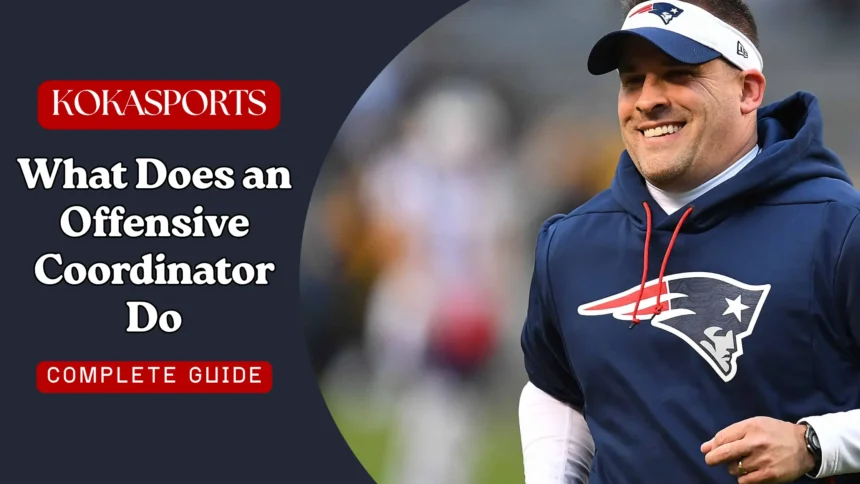In football, the offensive coordinator is one of the most important members of any coaching staff. This coach designs the plays, creates the game plan, and often serves as the play caller who decides what happens on every single snap. Whether you’re watching the Miami Dolphins, Buffalo Bills, or Los Angeles Chargers, the offensive coordinator is working behind the scenes to outsmart the defense and put points on the board.
The offensive coordinator works closely with the head coach to shape the team’s identity. While the head coach oversees everything, the offensive coordinator focuses entirely on scoring touchdowns and moving the chains. This role requires deep football knowledge, leadership skills, and the ability to make split-second decisions that can change the outcome of a game.
In this guide, we’ll explore everything about what an offensive coordinator does, how they fit into the coaching hierarchy, and why this position is so crucial to success in both the NFL and college football.
What Does an Offensive Coordinator Do?

The Core Responsibilities of an Offensive Coordinator
The offensive coordinator has many important jobs that all work together to create a successful offense. First and foremost, this coach designs and implements the offensive game plan each week. This means studying film of the opponent’s defense, finding their weaknesses, and creating plays that exploit those weaknesses.
Working with the quarterback is another critical responsibility. The offensive coordinator and quarterbacks coach often work hand-in-hand to develop the QB’s skills and help them read defenses. The coordinator must ensure the quarterback understands every play in the playbook and knows how to adjust when the defense shows different formations.
The offensive coordinator also leads the entire offensive coaching staff. This includes position coaches for the offensive line, wide receiver, tight end, and running backs. These position coaches report to the coordinator and help implement the weekly game plan during practice. The coordinator runs offensive meetings where the whole group watches film together and discusses strategy.
During practice, the coordinator oversees all offensive drills and ensures players are executing plays correctly. They must balance creativity with simplicity, making sure plays are effective but not too complicated for players to learn quickly.
The Offensive Coordinator as a Play Caller
Being a play caller means you decide which offensive plays the team runs during the game. This is one of the most pressure-filled jobs in football. The offensive coordinator must consider down and distance, field position, time remaining, and what the defense is showing—all within seconds.
Some coordinators are aggressive, calling deep passes and trick plays. Others prefer a conservative approach, running the ball to control the clock. The best coordinators adapt their play calling to match their personnel. If you have a great offensive player at wide receiver, you design plays to get them the ball. If your offensive line dominates, you run the ball more.
In some organizations, the head coach might call plays instead of the coordinator. For example, when a former offensive coordinator becomes a head coach, they sometimes keep the play calling duties. However, most head coaches delegate this responsibility so they can focus on managing the entire team.
In-Game Duties and Adjustments
Football games are constantly changing, and the offensive coordinator must adjust on the fly. During the game, they sit in the coaches’ booth high above the field or stand on the sideline with a headset, communicating with the quarterback and other coaches.
Reading defensive formations is essential. If the defense lines up in a certain way, the coordinator might change the play at the last second. At halftime, the coordinator meets with the coaching staff to discuss what worked and what didn’t. These adjustments can completely change the momentum of a game.
The coordinator also communicates plays to the quarterback through the helmet radio. They must speak clearly and quickly, giving the QB all the information needed before the play clock expires.
Read More: How to Become a Football Coach: Ultimate Guide to Starting a Rewarding Coaching Career
How an Offensive Coordinator Fits into the Coaching Staff

Relationship with the Head Coach
The offensive coordinator reports directly to the head coach and must work closely with them throughout the week. Some head coaches give their coordinators complete freedom to design the offense, while others want more control over the game plan.
The best partnerships happen when the head coach and coordinator trust each other completely. Mike McDaniel, who became head coach of the Miami Dolphins after serving as an offensive coordinator, is a great example of someone who understood this relationship from both sides.
Working Alongside the Defensive Coordinator and Special Teams Coordinator
While the offensive coordinator focuses on scoring points, the defensive coordinator works to prevent the opponent from scoring. These two coaches must communicate regularly to ensure the team has a balanced approach. For example, if the offense struggles to control the ball, the defense might get tired from playing too many snaps.
The special teams coordinator also plays an important role in field position. A good punt or kickoff return can set up the offense for success, while a turnover in bad field position makes the offensive coordinator’s job much harder.
The Role of Position Coaches Under the Offensive Coordinator
Position coaches are specialists who work with specific groups of players. The assistant coach for quarterbacks, the assistant wide receivers coach, and the offensive line coach all report to the offensive coordinator. These coaches implement the coordinator’s vision at a detailed level, teaching technique and helping players understand their assignments.
The offensive coordinator must be a good leader and mentor to these coaches. They need to create a positive environment where everyone works toward the same goal. Some coordinators start their coaching career as an offensive quality control coach or offensive analyst before becoming a coordinator.
The Coaching Hierarchy in Football Explained
Head Coach vs. Coordinator Roles
The head coach is the leader of the entire organization. They make final decisions on everything from player personnel to game strategy. The offensive coordinator, defensive coordinator, and special teams coordinator all report to the head coach and handle their specific areas.
Many successful head coaches started as coordinators. This career progression makes sense because coordinators learn how to manage a large group of coaches and players. They also get experience making critical decisions under pressure. The 2024 and 2025 seasons have seen several coordinators promoted to head coach positions across the NFL.
Inside an NFL Coaching Staff
A typical NFL coaching staff includes dozens of coaches and support personnel. At the top is the head coach. Below them are the three coordinators: offensive coordinator, defensive coordinator, and special teams. Under the offensive coordinator, you’ll find position coaches, a passing game coordinator, and sometimes a co-offensive coordinator who shares responsibilities.
Teams also employ offensive quality control coaches, analysts, and assistant coaches who help with film study and practice planning. The structure varies by team, but the offensive coordinator always plays a central leadership role.
Skills and Qualities of a Successful Offensive Coordinator

Strategic Thinking and Play Design
Great coordinators are creative problem-solvers. They must design plays that confuse defenses while remaining simple enough for players to execute. This requires understanding both offensive and defensive football at the highest level.
They study offensive systems like the West Coast offense, spread offense, and Air Raid. Each system has strengths and weaknesses. The best coordinators adapt these systems to fit their players’ talents rather than forcing players into a system that doesn’t match their skills.
Leadership and Communication
An offensive coordinator must communicate complex ideas in simple language. Players need to understand their assignments clearly, and coaches need to feel supported and valued. Good coordinators motivate their staff and players even during difficult stretches.
They also handle pressure well. When the offense struggles, the coordinator faces criticism from fans and media. They must stay confident and keep the team focused on improvement.
Technical Knowledge and Film Study
Modern coordinators spend countless hours studying film. They watch their own team’s practices and games, but they also study opponents extensively. Analytics have become increasingly important, with coordinators using data to inform decisions about which plays work best in specific situations.
How to Become an Offensive Coordinator
Common Career Path and Experience Needed
Most coordinators start their coaching experience as position coaches or quality control assistants. An offensive quality control coach might spend years breaking down film and helping with practice planning before earning a promotion. The typical path looks like this:
- Entry-level position (offensive analyst, quality control)
- Position coach (QB, WR, RB, OL)
- Passing game coordinator or senior assistant
- Offensive coordinator (OC)
- Head coach (for some coordinators)
Some coordinators played professional or college football and transition into coaching after their playing careers end. Others never played at a high level but have deep knowledge of the game.
Key Traits Scouts and Head Coaches Look For
When hiring a new offensive coordinator, head coaches look for several qualities. First, they want someone with proven success developing players, especially quarterbacks. A coach who helped a QB improve their completion percentage or yards per play is attractive.
Decision-making ability is crucial. The coordinator must make good calls under pressure. Adaptability matters too—defenses constantly evolve, and coordinators must stay ahead of trends. Finally, head coaches want coordinators who are good teachers and communicators.
Examples of Great Offensive Coordinators in the NFL
Notable Offensive Coordinators and Their Teams
Several coordinators have made huge impacts on their teams in recent years. Ken Dorsey helped the Buffalo Bills develop one of the league’s most explosive offenses in 2022 and 2023. His work with the passing yards per game and points per game rankings showed his ability to maximize talent.
Kellen Moore, who worked with the Los Angeles Chargers as their offensive coordinator, brought creative play designs and modern concepts. His offenses ranked nationally in total offense and showed consistent improvement in scoring offense.
The Miami Dolphins have also benefited from innovative offensive coaching. Their ability to rank nationally in passing offense and yards of total offense per game has made them one of the most exciting teams to watch.
How Offensive Coordinators Shape a Team’s Identity
Some coordinators completely change how their teams play. Andy Reid, Kyle Shanahan, and Sean McVay all served as coordinators before becoming head coaches. Their innovative approaches influenced the entire league.
These coaches emphasized motion, misdirection, and getting the ball to offensive players in space. They proved that creative play calling could overcome talent deficits. Their success inspired many younger coaches to adopt similar philosophies.
The Impact of the Offensive Coordinator on Team Success
How a Coordinator Can Make or Break a Season
A new offensive coordinator can completely transform a struggling offense. When a team ranks low in total offense, rushing offense, or passing yards, bringing in fresh ideas often helps. The coordinator’s chemistry with the QB is especially important—if they don’t work well together, the whole offense suffers.
Statistics like yards of total offense per game, rushing yards per game, and touchdown production often improve dramatically under the right coordinator. Teams that rank nationally in rushing yards or passing offense usually have excellent coordinators who maximize their players’ strengths.
Coordinators Who Became Successful Head Coaches
Many of today’s best head coaches were once coordinators. They learned how to manage large staffs, make game-changing decisions, and develop winning game plans. The transition from coordinator to head coach isn’t always smooth—suddenly you must manage defense, special teams, and team-wide decisions—but the experience as a coordinator provides excellent preparation.
Coaches who served multiple seasons as head coach after coordinating often credit their offensive coordinator experience for teaching them how to lead and make tough decisions.
Future of the Offensive Coordinator Role
Analytics, AI, and Technology in Coaching
Modern coordinators use sophisticated software to analyze yards per play, completion percentage, and other metrics. Technology helps them identify tendencies in opposing defenses and find the best plays for specific situations. This trend will only increase as AI tools become more advanced.
The Evolution of Offensive Strategy
The game continues to evolve. College football innovations often make their way to the NFL. Spread concepts, RPOs (run-pass options), and motion-heavy schemes have become common. The 2021, 2023, 2024, and 2025 seasons have all shown increasing creativity in offensive play design.
The best coordinators adapt quickly to these changes. They study what works and incorporate new ideas while maintaining their core philosophy. The ability to call plays that keep defenses off-balance will always be valuable.
Conclusion :
The offensive coordinator role is one of the most important positions in football. These coaches design the game plan, develop players, and make critical decisions that determine whether teams win or lose. From pro football to college programs, the offensive coordinator’s influence cannot be overstated.
Whether they’re selected for coach of the year honors or using their coaching career to prepare for becoming a head coach, these leaders shape how teams play. They work tirelessly through the NFL draft process, offseason preparation, and weekly game planning to give their teams the best chance to succeed.
The next time you watch a game and see a perfectly designed touchdown or a drive that racks up rushing yards and passing yards, remember that an offensive coordinator spent hours preparing that moment. Their work continues to evolve, making football more exciting and innovative with each passing season.
FAQs
Q: What does an offensive coordinator do?
An offensive coordinator designs the offensive game plan, calls plays, and oversees the offensive coaching staff to ensure the team’s offense performs efficiently during games.
Q: What skills are needed to be an OC?
Key skills include strategic thinking, play-calling expertise, leadership, communication, game analysis, and deep knowledge of offensive football schemes.
Q: Did the Chiefs lose their offensive coordinator?
Yes. After the 2023 season, the Kansas City Chiefs’ offensive coordinator Eric Bieniemy left for the Washington Commanders, and Matt Nagy took over as OC.
Q: Who will replace Kellen Moore?
The Los Angeles Chargers hired Greg Roman as their new offensive coordinator in 2024, replacing Kellen Moore.




